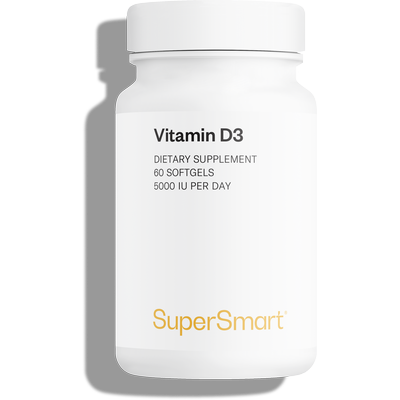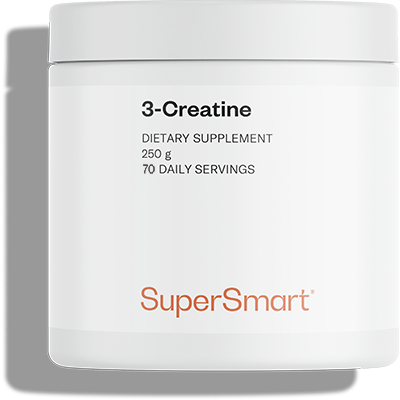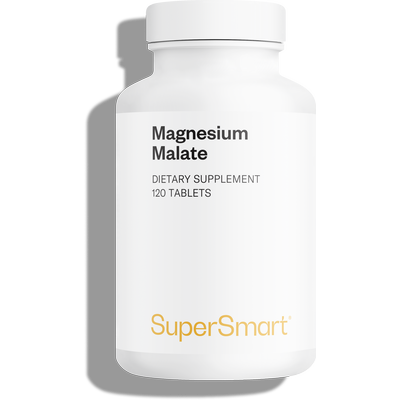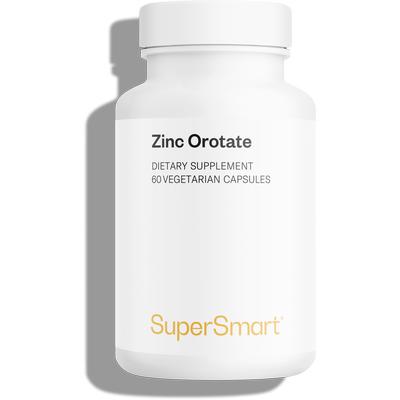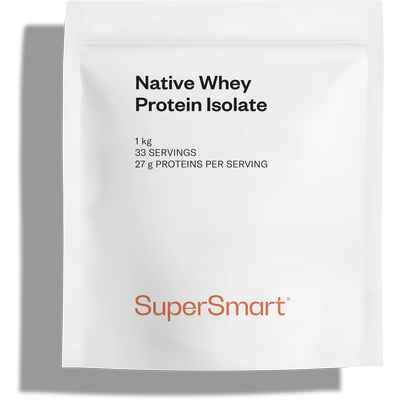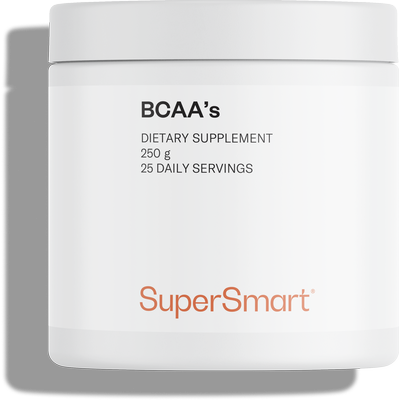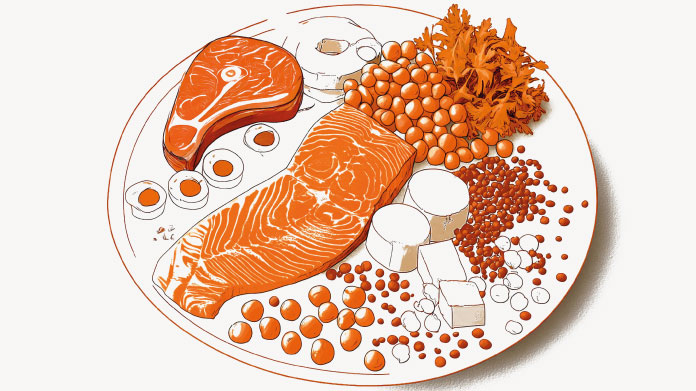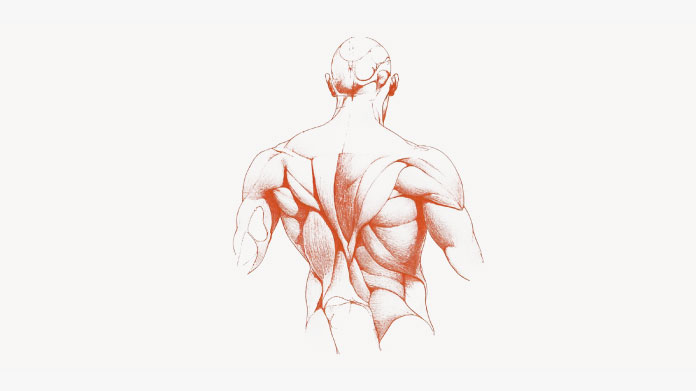Top 10 protein-rich foods
Whether you're building muscle mass or simply looking for a balanced and complete diet, it's essential to know which foods are richest in protein, an essential macronutrient. Here are the top 10 most protein-rich foods.

What are proteins?
Definition of protein
Proteins are assemblies of amino acids that are essential to our bodies and are involved in structural, muscular, digestive, immune, hormonal and enzymatic functions, etc. (1).
The function of proteins is determined by the way they are assembled. Our bodies contain around 10,000 different types of protein.
Amino acids: the building blocks of proteins
Most of the proteins we obtain from our diet are broken down into amino acids (the building blocks of proteins) by our body, which then uses them to make the proteins it needs.
There are 20 types of amino acids, and our body is only capable of synthesising 11 of them: the other 9, known as essential amino acids, must therefore be provided by proteins in the diet (2).
On average, it is considered that food should provide between 1g and 2g of protein per kilo of body weight per day (3).
Protein and bodybuilding
Proteins are known to be the main building blocks of muscle.
An adult body weighing 70 kg contains an average of 10 kg of protein., with no less than 40% of that amount stored in muscle fibres.
So if you're looking to build muscle mass, it's vital to ensure that your diet is sufficiently rich in protein.
Top 10 foods with the highest protein content: let's see how they stack up!
To help you include enough protein in your diet, here's a ranking of the 10 foods with the highest protein content, from lowest to highest (per 100g of the food concerned):
10) Cottage cheese
A sportsperson's favourite food, cottage cheese is a very good source of animal protein.
With 8g of protein per 100g, this fresh cheese can provide protein at every meal, from breakfast to dinner, including morning and afternoon snacks.
9) Eggs
Eggs are another excellent source of animal protein, as well as being rich in fats, vitamins, minerals, etc.
On average, eggs contain 13.5g of protein per 100g (i.e. an average of 6-8g of protein per egg).
8) Tofu
Tofu is a very good source of vegetable protein.
This 'soya cheese' is made by fermenting soya milk and, depending on the product and manufacturer, contains between 8g and 15g of protein per 100g.
It is a very practical vegan alternative that can be cooked in many different ways.
7) Legumes
Staying with plant proteins, legumes have the particular benefit of providing you with almost all the essential amino acids (which is not the case with all plant proteins).
However, they are generally low in L-methionine, an amino acid found in meat, fish, soya beans and cereals.
The amount of protein varies depending on the variety of legume, but ranges from 20 g to 26 g per 100 g of dried legumes.
6) Oily fish
Mackerel, sardines, tuna, salmon, etc.
As well as being rich in omega-3s, oily fish are abundant sources of animal protein, containing between 21 g and 26 g of protein per 100 g, depending on the season, type of fishing, etc.
5) Beef
Beef remains one of the star foods when it comes to protein. And with good reason: it's muscle!
On average, beef contains 26g of protein per 100g.
As well as animal proteins, beef also provides a lot of haem iron, which is easily absorbed by the body, and vitamin B12.
4) Poultry
Poultry is the meat with the highest animal protein content.
This includes guinea fowl (between 21 and 25g of protein per 100g), chicken (27g of protein per 100g) and especially turkey (29g of protein per 100g), all of which are very popular with bodybuilders.
3) Parmesan cheese
Hard cheeses generally contain a significant amount of animal protein.
But in the case of Parmesan, the scores are smashed: it contains an average of 36g of protein per 100g!
That's enough to make you want to concoct a salad of pulses, cereals, roast turkey breast and Parmesan...
2) Dried salt cod
The unexpected star of protein-rich foods is dried salt cod!
Very rarely eaten and relatively unloved, it nevertheless contains an average of over 45g of protein per 100g!
The best way to get the most out of it is to put it on a hot grill to desalinate it.
1) Whey protein
There is, however, one foodstuff that dethrones all others in terms of protein content: whey, the protein powder derived from milk.
The flagship food for sportspeople, whey can contain around 90% protein, with 100g of quality whey providing around 90g of protein. It is generally recommended to consume around 30g of a quality whey product per day, which provides around 27g of protein. This is enough to easily supplement your daily protein intake, particularly when building muscle mass (4).
For intact, undenatured amino acids, choose a native whey, i.e. one made directly from milk and not from by-products of the cheese industry like ordinary whey.
If possible, opt for a native whey isolate, as this form is purified to eliminate virtually all fats, carbohydrates and lactose. It also guarantees a very high protein concentration and reduces the risk of digestive problems.
Ideally, buy a native whey isolate with no added flavouring, colouring, sugar or sweeteners, rich in BCAAs and minerals (this is the case with Native Whey Protein Isolate, with 92% protein).
2 additional food supplements for mass gain
If you're looking to build muscle mass, you can also supplement your diet with 2 food supplements that are particularly suitable for athletes and bodybuilders:
- creatine: an amino acid derivative produced naturally by the body, which helps to regenerate ATP, the source of energy for muscles. Supplementing with creatine helps you to increase your physical performance during short-duration, high-intensity exercise (for example, with 3-Creatine) (5);
- BCAAs: 3 branched-chain amino acids (leucine, isoleucine and valine) that account for 30 to 35% of the amino acids that make up muscles. Take a BCAA supplement to rapidly increase your intake (with BCAA's) (6).
Protein intake: a few more reminders
The nutritional values of foods may vary slightly depending on the brand and preparation method.
Despite your desire to increase your protein intake, make sure you maintain a balanced diet: protein is important, but don't neglect the other macronutrients. Carbohydrates and fats are essential for providing energy and supporting your vital functions.
Fill up on micronutrients too, including vitamins (vitamin D with Vitamin D3 5000 IU, vitamin C with Liposomal Vitamin C, etc.) and minerals (magnesium with Magnesium Malate, zinc with Zinc Orotate, etc.), which are essential for your body's transformations and for maintaining your health.
SUPERSMART ADVICE
References
- https://www.inrae.fr/alimentation-sante-globale/proteines-questions
- BOUTRY, Claire, BOS, Cécile, et TOMÉ, Daniel. Les besoins en acides aminés. Nutrition clinique et métabolisme, 2008, vol. 22, no 4, p. 151-160.
- https://www.anses.fr/fr/content/les-proteines
- GANGURDE, Hemant, CHORDIYA, Mayur, PATIL, Pooja, et al.Whey protein. Scholars' Research Journal, 2011, vol. 1, no 2.
- RAWSON, Eric S. et VOLEK, Jeff S. Effects of creatine supplementation and resistance training on muscle strength and weightlifting performance. The Journal of Strength & Conditioning Research, 2003, vol. 17, no 4, p. 822-831.
- MATSUMOTO, K., KOBA, T., HAMADA, K., et al.Branched-chain amino acid supplementation attenuates muscle soreness, muscle damage and inflammation during an intensive training program. J Sports Med Phys Fitness, 2009, vol. 49, no 4, p. 424-31.
38 Minutes
GOOD BRAND IN FOOD COMPLEMENTS
GOOD BRAND IN FOOD COMPLEMENTS - SERIOUS WITH GOOD DOCUMENTS AND DETAILS SCIENTIST. AND SERIOUS HONNEST COMMERZIALISATION. I HAVE TRUST IN THEIR PRODUCTS.
FENOGLIO Guy
1 Days
Very good experience
Very good experience, the products arrived in time, in perfect condition and are good quality. Thank you.
GABI TIRCOCI
7 Days
very good expereince
very good expereince
Jelena Đaković
7 Days
Very good products.
Very good products.
Agnes BENDSAK
9 Days
Just OK
Just OK, ordering from company for many years and being safisfied
Lynn Mae
9 Days
Recomendo
Produtos encomendados são recebidos atempadamente e de acordo com o anunciado! Muito satisfeita!
Carla Sofia
10 Days
Everything is great!
Everything is great!
Jonas
15 Days
The delivery was fast and the product…
The delivery was fast and the product is great
SOMMARIVA Gianni
16 Days
Great service and lots of information
Great service and lots of information
Gabi
19 Days
Service Satisfaction
I’m satisfied with the service; it fulfilled what it set out to do.
Anfhony Abreu
22 Days
Original product and fast delivery
Original product and fast delivery. I haven't started it yet, but will do soon.
Vincenza Catania
25 Days
Good quality
Good quality. Good service.
Leonel Guzman
27 Days
Top!!!!!!!!
Top!!!!!!!!
Michael
29 Days
Excellent!
Products are great and delivered fast!
PARDINI Debora
29 Days
From order to receive the product
From order to receive the product, the process is smooth & fast. It’s good to customers.
WONG Mei Ling
of experience
your money back
##montant## purchase


